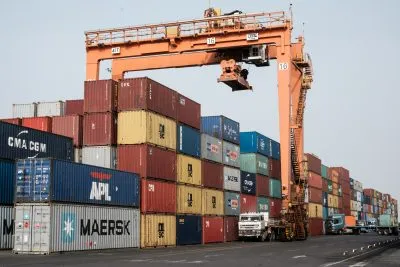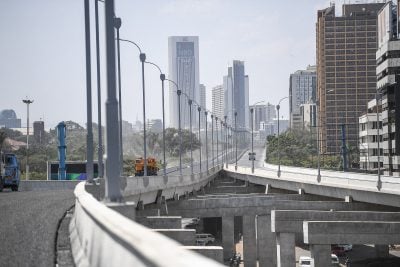Perhaps for the first time since the fall of the Berlin Wall in 1989, the annual gathering of the world’s richest nations (and a fair sprinkling of those on the other side of the divide) for the World Economic Forum summit at Davos, Switzerland, will show more fissures than the proverbial Swiss cheese. Writes Anver Versi
At the time of writing, Donald Trump had announced that he would rather spend more time at home trying to force through his Mexican Wall than meet with other global leaders; China’s Xi Jinping is likely to stay away, the European Union’s clout will be severely dented by the UK’s determination to break away from what has become the world’s largest common market and the rise of right-wing nationalist governments in Latin America and Europe will add further fuel to divisive, nativist tendencies.
These developments must strike Klaus Schwab, Founder and Executive Chairman of the WEF, like hammer blows aimed at bringing down the globalisation edifice that his organisation has spent so much time, energy, dedication and thought into maintaining over the decades.
He concedes that for the next wave of globalisation, Globalisation 4.0, “leaders should learn from past mistakes and build more inclusive societies and better protect vulnerable communities.” While globalisation has brought an unprecedented increase in trade and raised millions out of poverty, it has also increased inequality to intolerable levels.
For this very reason, Davos 2019 has the opportunity to strike out on a bold new path instead of rubber stamping the status quo as it has done in the past and seize the theme ‘Globalization 4.0: Shaping a Global Architecture in the Age of the Fourth Industrial Revolution’ with imagination and gusto.
Africa in a good place
Africa can play a significant part in this scenario. Hitherto, African delegations have been little more than interested spectators at a banquet for the rich. But when the rich start falling out among themselves and in some cases start shooting themselves in the foot, perhaps those in the ‘slow lane’, including Africa, may be able to proffer solutions that will restore equilibrium.
Africa and for that matter, the whole developing world needs global equilibrium at this stage of their development. In the whole, the continent has done well – after a tepid annual growth of 2.2% in 2016, average real GDP in Africa reached 3.6% in 2017 and is expected to grow 4.1% in 2018 and 2019.
No single factor, according to the African Development Bank, accounts for this improvement. It reflects better global economic conditions; the recovery in commodity prices (mainly oil and metals); sustained domestic demand, partly met by import substitution; and improvements in agricultural production.
In fact, says the AfDB, GDP in Africa has grown in real terms every year since 2009, despite the hit to export earnings by the decline in commodity prices in 2013–15. Public and private investment grew every year between 2012 and 2016.
This was despite the recession in Africa’s biggest economy, Nigeria, in 2016 and the continuing poor growth in Africa’s other giant economy, South Africa. Egypt has been the surprise standout, registering a growth of just over 4% in 2017 despite political upheavals.
The best overall performance has come from Africa’s non-oil nations where sound microeconomic policies, investments in revenue-generating infrastructure, better mobilisation of domestic resources through tax collections, improved levels of governance and accountability and higher consumer demand have yielded fruit in improved living standards.
While worrying hot-spots (South Sudan, Libya, Central African Republic, Sudan) persist, Africa in general is in a good place. But it has accumulated considerable debt – mainly to China – and needs global equilibrium and a return to growth for the positive trajectory to continue.
Globalisation 4.0 with its promise of a fairer, more equitable world, is just what the doctor ordered for the continent. At Davos 19, Africa should be more than an interested spectator, it should seek to become a player if the divisive, protectionist forces now let loose are to be curbed.
You can access our Special Davos Edition here

Want to continue reading? Subscribe today.
You've read all your free articles for this month! Subscribe now to enjoy full access to our content.
Digital Monthly
£8.00 / month
Receive full unlimited access to our articles, opinions, podcasts and more.
Digital Yearly
£70.00 / year
Our best value offer - save £26 and gain access to all of our digital content for an entire year!
 Sign in with Google
Sign in with Google 



